30 January 2021
Posted by Beth McKeeman
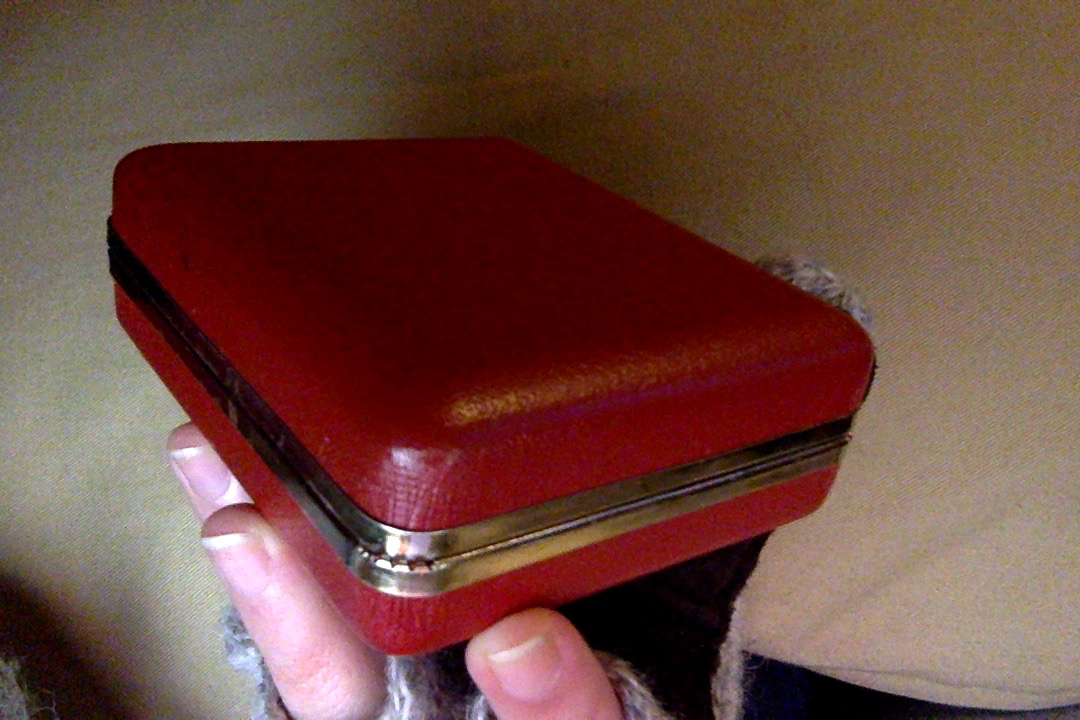
Monologues
Group 1 – 12 Group 2 – 6
There’s a popular quote 'English is a language that lurks in dark alleys, beats up other languages and rifles through their pockets for spare vocabulary'. When planning the session, I never expected Group 1 to stumble into the realm of language families but as we looked into the meaning of monologue – mono meaning one – the comparison words to monopoly came up followed by monobrow and unibrow meaning the same thing.
Mono comes from the greek, uni from the latin, English has words from everywhere. We’re part of the Indo-European languages, if you trace the family tree of languages back far enough, with our closer relatives being the germanic languages which is why there are recognisable elements there and why the idea of Esperanto as a made-up unifying language using elements of varying European languages is surprisingly easy if you have even a passing knowledge of French and Spanish. However, English didn’t just leave it at inheriting languages, because we were invaded by saxons and normans and vikings and romans and then went on to invade the whole of the world ourselves, we stole a lot of language from everyone around us. And we’re still doing it, maybe not as obviously but we’re all driving Toyota’s and playing on Nintendo’s, both Japanese words. It’s a whole field of study, and going back to fairy tales that we looked at last term, tracing language trees is how experts are dating some of these oral tales that appear in different cultures.
Back to the main theme of the week though. Group 1 got to let their evil side loose with some villain monologues. This trope of a narrative device is pretty entrenched within the superhero genre, but it wasn’t always. At the start of comics, with multiple characters and stories in each edition, there simply wasn’t room for verbose bad guys, however as comics moved out of the golden age that all changed. In the silver age each comic was about one character (or group) and their story arcs were serialised. This not only gave room for more words, but monologues provided a great way to do a ‘previously on’ moment.
Recently, villain monologues have become a bit of a joke as their use has become cliche, however they serve their purpose as we looked at through The Incredibles. Syndrome humanises himself to the audience, fills us in on aspects of his plan we weren’t aware of, and more over doesn’t kill Mr Incredible straight away because he does respect him and he needs this moment of victory to prove himself superior. With this in mind, we set about writing our own villainous monologues, to get back at the hero and humanise ourselves to the secondary audience of our speech. The idea of personal perspective shone through as the heroes got demonised in piece after piece, because after all, what is a hero but a villains antagonist, and who gets to decide who the villain is in the first place?
A well known monologuer is Shakespeare, and I have to admit that even though I wasn’t the biggest fan in school I’ve now got a collection of performances of my favourites. Soliloquies, as Conrad told us, are verbalised thoughts so the audience can join the thought process even though anyone else present doesn’t hear them. This is very convenient for ‘is this a dagger which I see before me’ Macbeth, because agonising over killing the king outlaid is the kind of thing which is frowned upon. What is less frowned upon is being tempted to open a box even when you’ve been told not to (pictured above). I’m not sure whether I feel flattered, offended, or should know better that this is all fiction that every single member of group 1 seemed to take my prompt as some kind of trick, only to be highly disappointed at the end of the session to learn the box was empty.
In Group 2 we started off with a little movie time, watching The Real Deal CripTales on BBC IPlayer. This was to get us in the mood for writing a monologue from a work view we’ll never experience, whether that be someone with a disability, an immigrant, an old lady, or an instigator of a brave new world in a dystopian setting.
We concluded with a prompt that by general consensus was harder, to monologue as a person who had missed out on collecting their lottery win. Everyone put me to shame as they focused on the hardships of life that winning the lottery could fix, and I sat and reminiced about a promise to my secondary school best friend that whichever of us would get a million first would buy an island. That highly unrealistic promise pales in comparison to the heartache of single mothers and children with holes in shoes, not being able to afford university and tracking what that life could have been, turning to crime to escape the trap of a council estate the money would have saved you from, or even starting off married life with a round-the-world trip you put all your money into and now have nothing to fall back on because you missed the lottery announcement whilst away.
As part of our loose overall theme of the term, both groups were introduced to the Quay Words Young Writers’ Flash Fiction Competition ’Trading Places’ and we are encouraging our young writers to think about what they could submit to both this and other competitions. It’s exciting to see them putting themselves out there and hopefully getting rewarded for it. Fingers crossed we’ll be sharing many pieces of exciting news on this blog as they keep engaging with these opportunities.
Shani's villain monologue
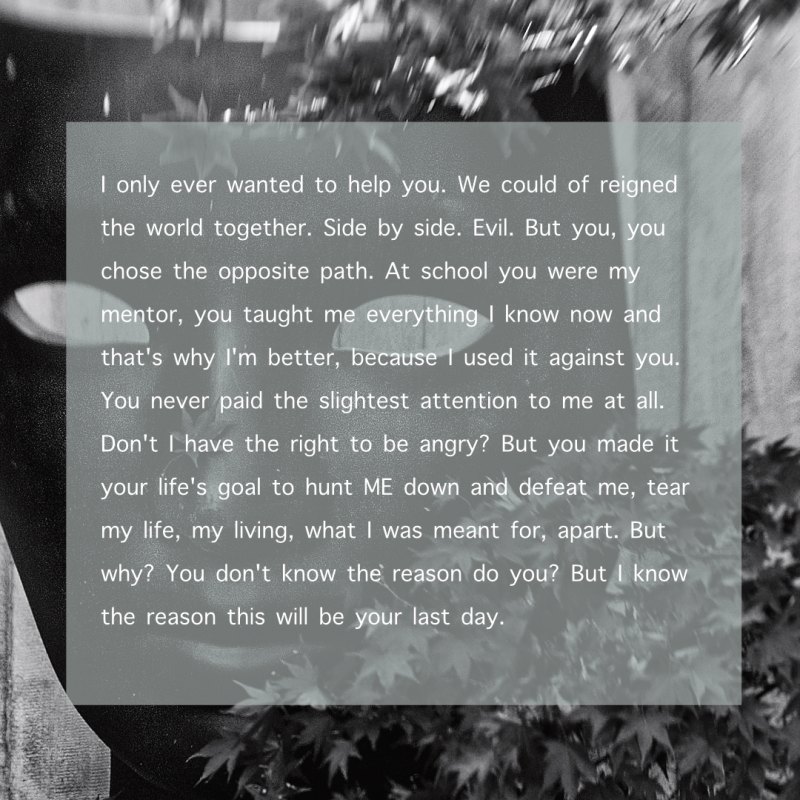
Conrad's villain monologue
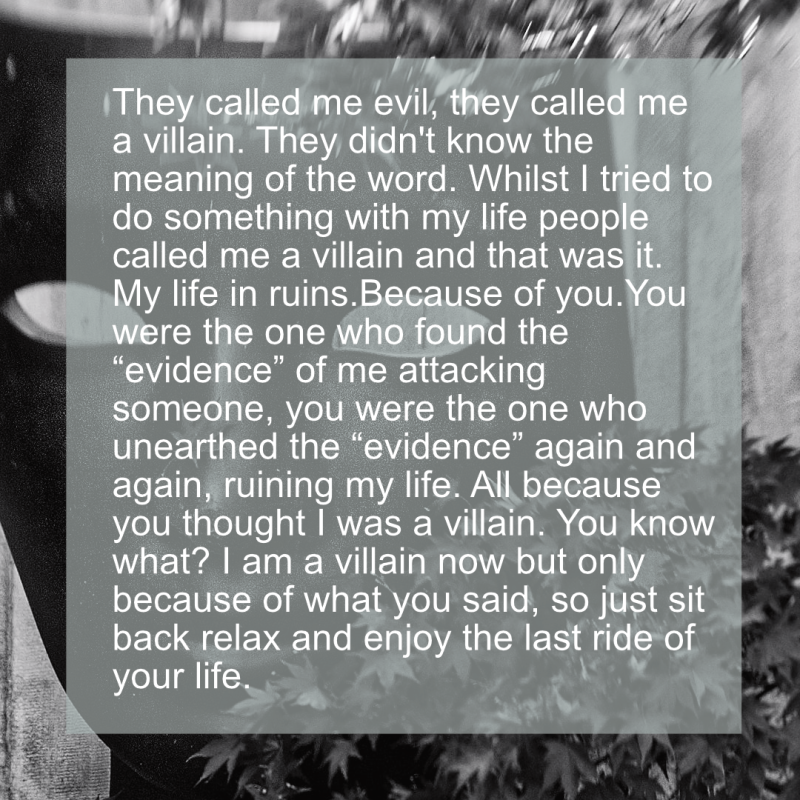
Katie's villain monologue
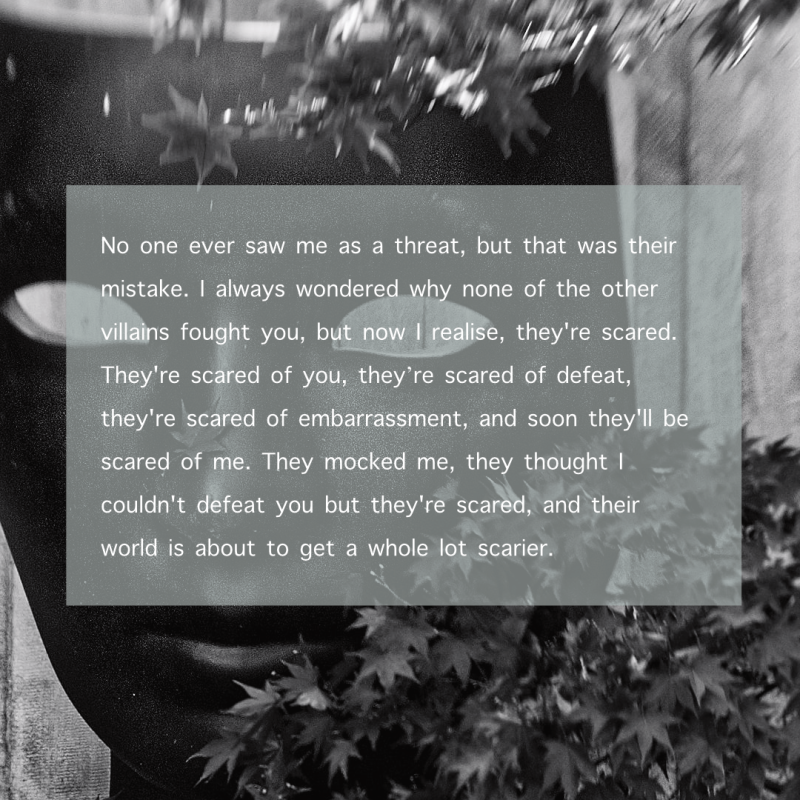
Max's villain monologue
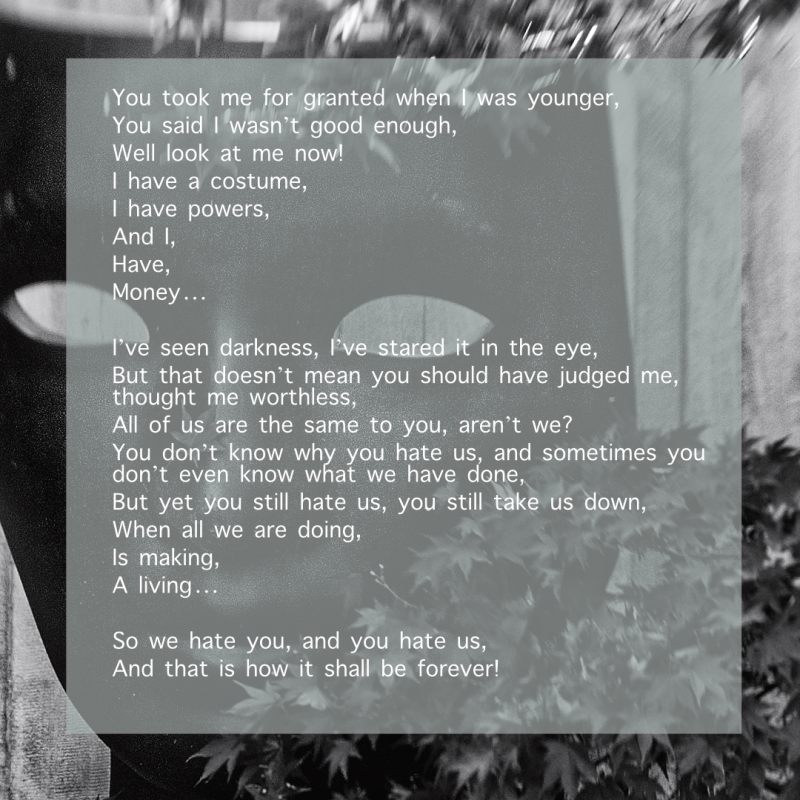
Rohini's villain monologue
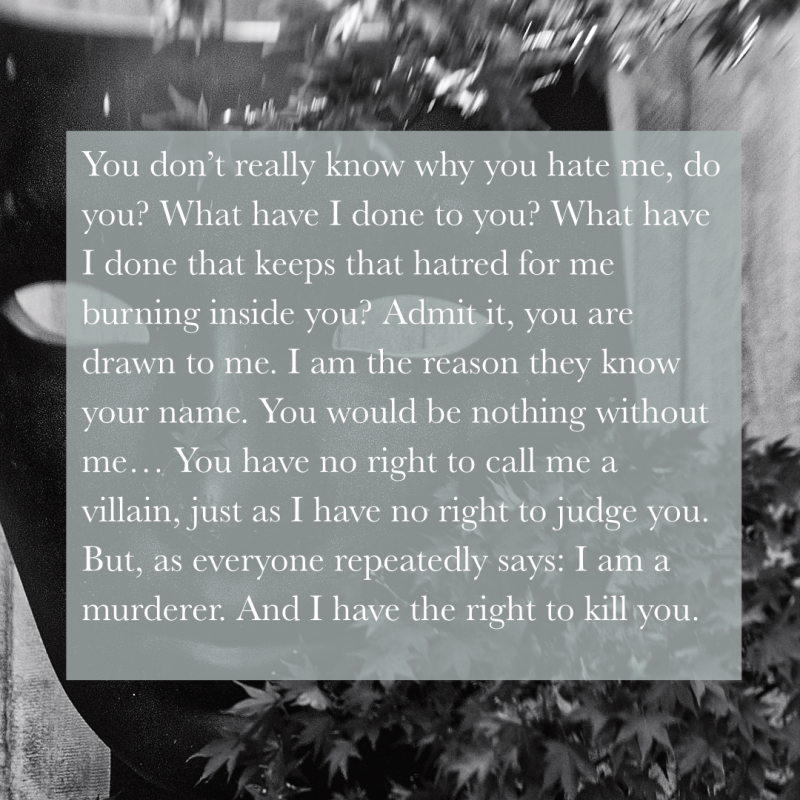
Gene's villain monologue
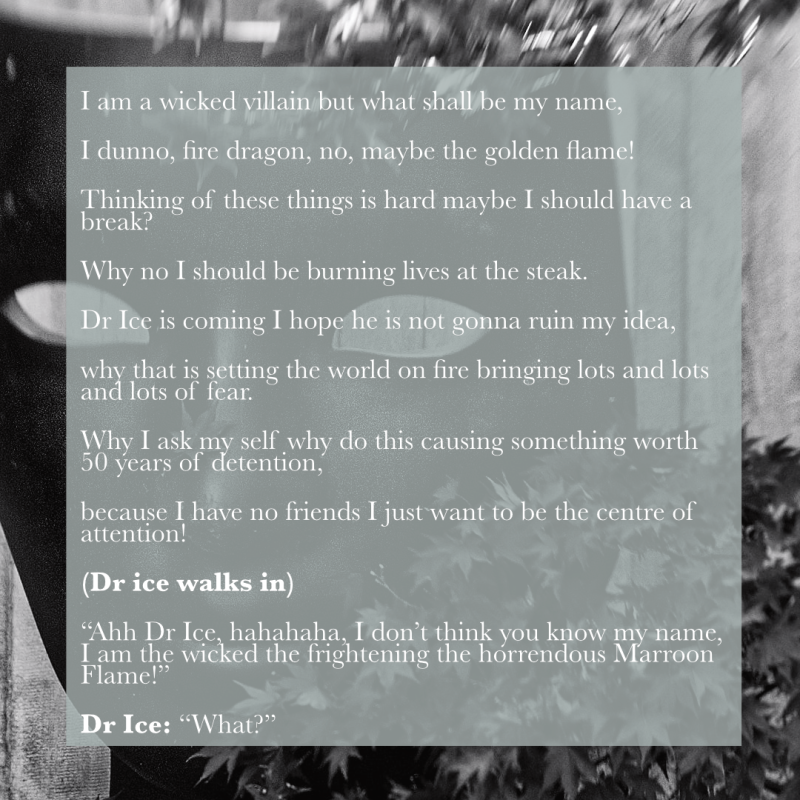
Eleanor's villain monologue
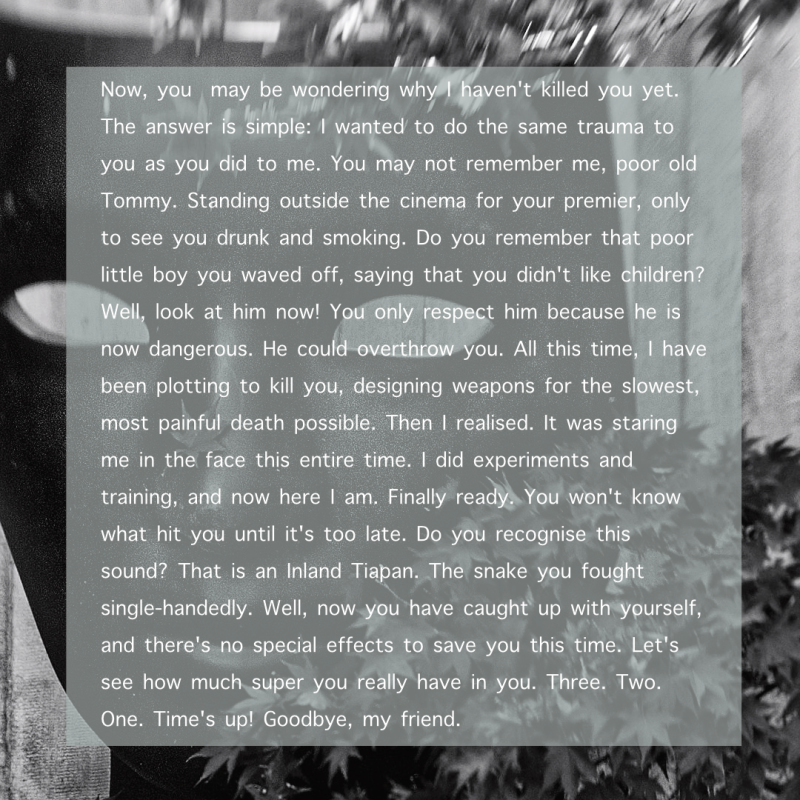
Conrad's box soliloquy
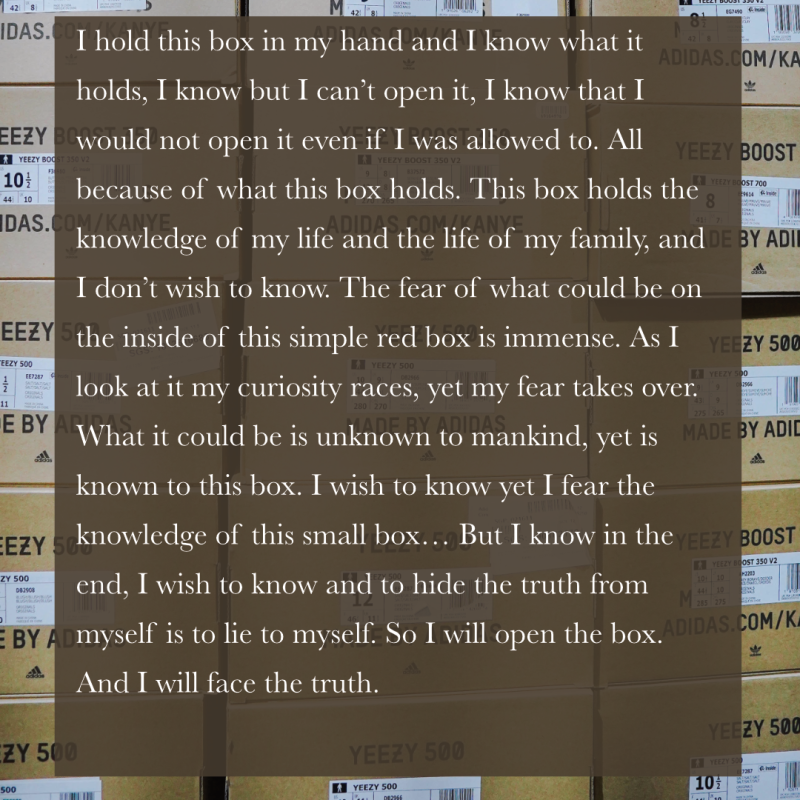
Katie's box soliloquy
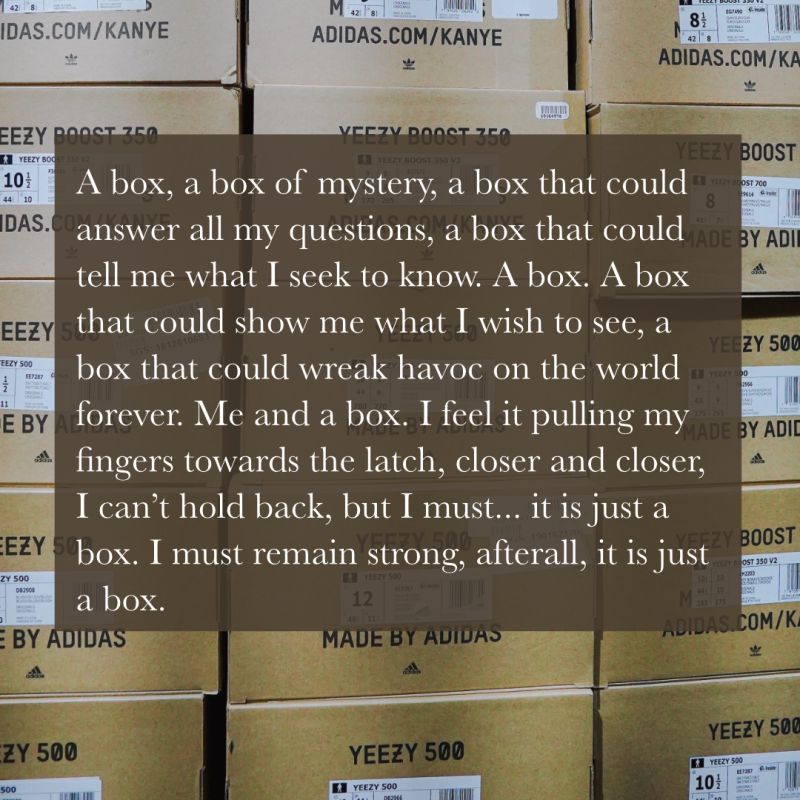
Max's box soliloquy
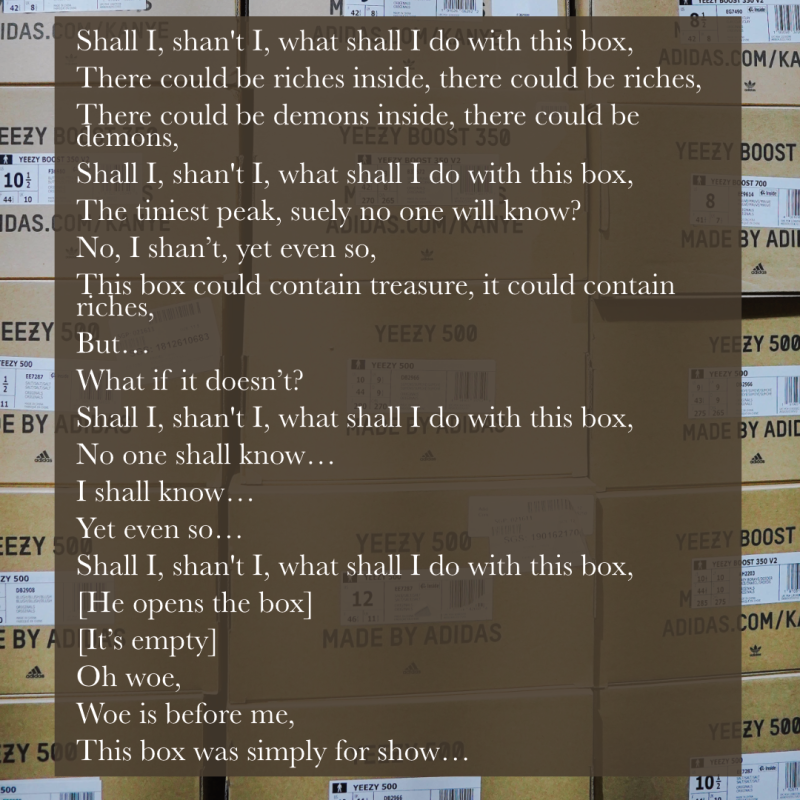
Naomi's box soliloquy
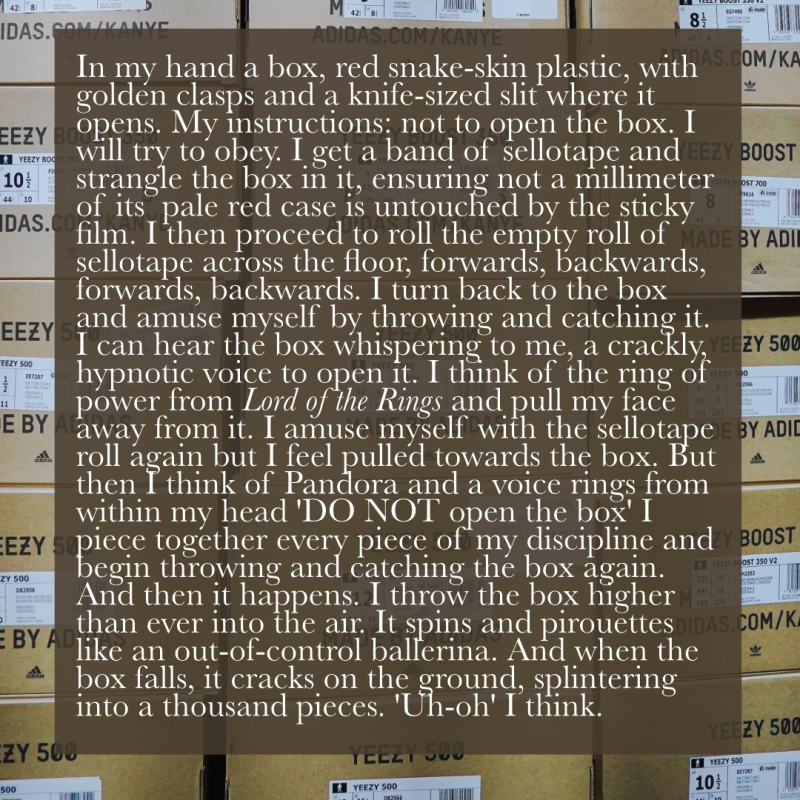
Eleanor's box soliloquy
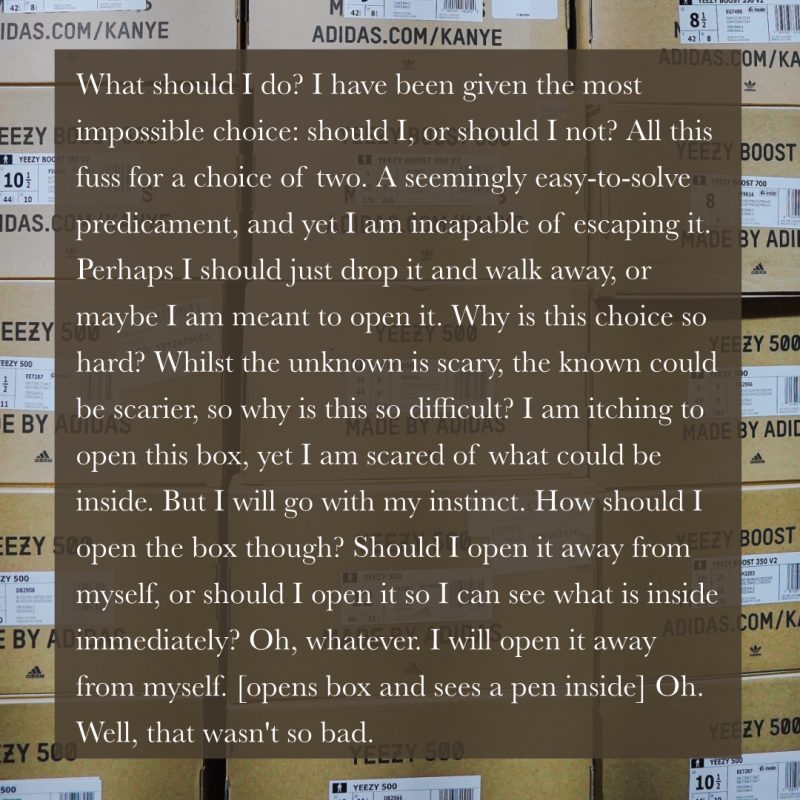
Archive
Junior & Young Writers Week 3: Return From The Magical World
Junior & Young Writers Week 2: African Mythology
Problems, Problems, Problems...
Cautionary Tales & Christmassy Opening Lines
You've Gotta Have Pace, Pace, Pace
Junior & Young Writers Week 1: Alien Encounters
Junior & Young Writers: Week 5 - Play on Words Pt. 2
Junior & Young Writers: Week 11 - end of term showcase [build a bard workshop]
Junior & Young Writers: Week 10 - Greek Theatre - chorus stories
Junior & Young Writers: Week 9 - Greek Origin Stories - Spring
Rubber Ducks & Writing Festivals
Junior & Young Writers: Week 7 - Greek Hero Stories [the 12 labours of Hercules]
Junior & Young Writers: Week 12 [Wild Words] - Stuff & Things
Junior & Young Writers: Week 11 [Wild Words] - World Building 2
Junior & Young Writers: Week 10 [Wild Words] - World Building
Junior & Young Writers: Week 9 [Wild Words] - Mystery & Choose Your Own Adventure
Junior & Young Writers: Week 8 [Wild Words] - Spooky Sequels & Potion Poems
Junior & Young Writers – Week 10 (Writers’ Inspiration) – Final Showcase
Junior & Young Writers – Week 9 (Writers’ Inspiration) – Editing & Performance Tips
Junior & Young Writers – Week 8 (Writers’ Inspiration) – Cuteness
Time goes on by Tavinder Kaur New
Junior & Young Writers – Week 7 (Writers’ Inspiration) – Natural Solutions
Junior & Young Writers – Week 6 (Writers’ Inspiration) – The Language of Fruit and Veg
Junior & Young Writers – Week 5 (Writers’ Inspiration) – Adventures In Space
Tinklebobs and Bedraggled Angles
Junior & Young Writers – Week 4 (Writers’ Inspiration) – Our Environment
Fortune Tellers & Future Letters
Junior & Young Writers – Week 3 (Writers’ Inspiration) – Home
Young Writers - Week 10 (The Art of Writing) – Final Week Showcase
Junior Writers - Week 10 (The Art of Writing) – Final Week Showcase
Young Writers – Week 9 (The Art of Writing) – Choose Your Own Adventure
Junior Writers – Week 9 (The Art of Writing) – Choose Your Own Adventure
Young Writers – Week 8 (The Art of Writing) – Sequel Stories
Junior Writers – Week 8 (The Art of Writing) – Sequel Stories
Young Writers – Week 7 (The Art of Writing) – Picture Prompts
Junior Writers – Week 7 (The Art of Writing) – Picture Prompts
Young Writers - Week 6 (The Art of Writing) - Script-writing & Dialogue
Junior Writers - Week 6 (The Art of Writing) - Script-writing & Dialogue
Junior Writers – Week 5 (The Art of Writing) – Poetry
Young Writers - Week 5 (The Art of Writing) - Poetry Potions
Edward The Martyr - A Competition!
Mood Boards and Postcards from Space
Young Writers - Week 3 (The Art of Writing) - PLOT
Junior Writers - Week 3 (The Art of Writing) - PLOT
Moomin Stories and Hollywood Pitches
Young Writers - Week 2 (The Art of Writing) - Genre & Setting
Junior Writers - Week 2 (The Art of Writing) - Genre & Setting
Prompts, Dialogues, and Cliché
Story Structure Part One: Exposition and Beyond...
Young Writers - Week 1 (The Art of Writing) - Character
Junior Writers - Week 1 (The Art of Writing) - Character
Young Writers - week 4 - Nature Writing [animals & wildlife]
Junior Writers - week 4 - Nature Writing [animals & wildlife]
Young Writers - week 3 - Nature Writing [trees/plants/flowers]
Junior Writers - week 3 - Nature Writing [trees/plants/flowers]
Young Writers - week 2 - 'fractured fairy tales'
Junior Writers - week 2 - 'fractured fairy tales'
Young Writers - week 1 - 'from deep inside a forest'
Creating Communities through Writing
WORDCUP - Hounsdown Session #6
Making pillows in a house full of feathers
WORDCUP - Hounsdown Session #5
Exploring home – a place, person, house
WORDCUP - Hounsdown Session #4
Stories From Our Streets at the Abbeyfield Wessex Society Reminiscence Session at Poole Library
What Do You Really Mean? Writing Dialogue for Scripts
WORDCUP - Hounsdown Session #3
Character Building & Murder Mysteries
Going inside – from a spark to a story
WORDCUP - Hounsdown Session #2
Maybe I Can Be Invisible After All... Monologues
Creative Writing: Fun Facts, Diverse Voices and Different Perspectives
Writing Competition - Stories From Our Streets
Stories From Our Streets Community Activity Pack
Thinking in-quiet, after the fire
Found Cities, Lost Objects: Women in the City Curated by Lubaina Himid CBE
Ekphrastic Jukebox - Writing to Music
ArtfulScribe LitFest Community Showcase 2023
Young writers exercise their creative power
Writing to The Sorcerer's Apprentice
The Mousetrap - Mayflower Young and Junior Writers Investigate Mystery!
Stories From Our Streets Launch!
Interview: In Conversation with Dr Victoria Leslie
The Missing Farmer/ Blackout Poetry & DADA
Exploring this wonderful World
Using props to create characters/ working as a writing room
Stories of the Dust and Character Questions
Storytelling and Escalation or Rising Action
Junior Writers Club Acrostic Poem
Notes on Intention for MAST Collective - Year 3 - Facilitation Focus
Earthquakes & Dominoes - MAST Collective Blog #4
SUPER MARIO AND POP CULTURE POEMS
Receptionists & Inky Voids - MAST Collective Blog #3
Saying No and saying YES on National Poetry Day!
There's a Dragon in the Wardrobe...
House Warming Party (The Mortifying Ordeal of Being Known) - MAST Collective Blog #2
Intern Blog 5 - The Publishing Process
POEMS TO SOLVE THE CLIMATE CRISIS
On The Streets With Theresa Lola
Intern Blog 4 - The Internship Journey
NEW DIRECTIONS, STARTING SMALL - THE ORWELL YOUTH PRIZE
LIGHTHOUSES, HOPE AND METAPHORS
on workshop and transformations: frogs, lions, and the duck that becomes a larder...
Poetry Ambassadors - Interview with April Egan
Intern Blog 1 - Finding a Voice
World Poetry Day: Fluffypunk and the Invisible Women
On Being a Writer: A Conversation by Beth Phillips & Sam Morton
Poetry Ambassadors - Interview with Kaycee Hill
UNHEARD VOICES: INTERNATIONAL WOMEN'S DAY, AND STORIES OF CONFLICT













